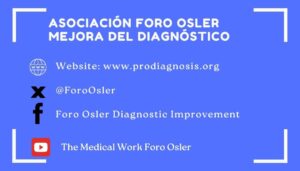Medical Oncology and COVID-19
A global threat
The life of people around the world has changed dramatically due to a pandemic caused by the virus SARS-CoV-2 and the disease known as COVID-19, initially detected in China. At this moment, Italy, Spain and USA, are the countries with the biggest number of people with a positive test. This tsunami haschanged dramatically the social life, but also the clinical activity in hospitals, and , in consequence, the life of other patients with important diseases . Medical Oncology is usually a crowded area in many public hospitals , a lot of problems, consultations, side effects, anxiety and a non-stop chronogram to administer the treatment to each patient. But, now the tsunami has stressed even more this specialty and there is a real challenge to maintain the clinical environment.
What happens to cancer patients and COVID-19 infection?
We still don,t know exactly if cancer patients are a risk group, because the scientific information is very scarce. One paper from a single institution with 1524 cancer patients in China (1) concluded that there is a higher risk of infection for patients with cancer compared with the community, but fewer than half of these patients were under active treatment. In the same paper there is also a suggestion of a moderately higher risk for patients with non-small cell lung cancer. In practical terms, we have to be aware that every patient with a tumor can also be at risk of infection in the same way that the rest of the population.
There is also another threat, the distraction effect (2), that means the allocation of the resources of the hospital to treat the epidemic, without a balance to maintain the adequate schedules and beds for cancer patients.
Professionalism is one of the pillars when looking for answers
As a Medical Oncologist, working in a ward with cancer patients, in a hospital with patients infected with SARS-CoV-2, I have decided to enumerate some practical rules for the everyday life in a ward of cancer patients.
The American Society of Clinical Oncology (ASCO) has developed specific resources for this situation (here).
The following concepts are practical items based in the everyday practice.
- Try to reduce the number of visits of cancer patients to the hospital (phone calls, telemedicine). Don´t wear your own clothes
- Limit hospital stays
- Limit the number of family members visiting: just one or none
- Try to keep your station locked
- Work as a real team with cleaner, nurses, other doctors
- Give a meaning to all these actions
- Work with sanitary equipment, including masks, special shoes, and changed it every day.
- Before a potential COVID-19 infection in one patient, give an advice to the whole team, put a mask to cover the nose and mouth of the patient and put him in an individual room, and select a sample for a COVID-19 test.
- Nurses must be advised that they have to be with the special facial and eye and head protection, when taking the sample.
- Never obtain the result of the test by phone, only a written report.
- Don´t allow anyone to go inside the doctor´s office.
- Keep the distance when you speak with family members
- Fever, cough or dyspnea and a clinical deterioration after improvement are alarming signs to ask for a test
- Use your clinical reasoning and common sense
- Think that your patient with a pulmonary consolidation or alveolar patches can have another common problem(cardiac insufficiency, drug toxicity, bacterial infection or pulmonary embolus)
- Be sure that every patient has a basal thoracic X-ray before going to the ward
- Explain to the patients and family the reason of your measures.
- Be nice and reassure to the patient that everything is going to be done to treat his or her problem
- Give clear advices, maintain discipline, encourage motivation, keep calm and order.
Lorenzo Alonso, MD
Medical Oncologist
Bibliography
(1) Yu,J, et al. Research Letter. JAMA Oncology. Published online March25, 2020. E1
(2) Cortiula,F, et al. Managing COVID-19 in the oncology clinic and avoiding the distraction effect. Annals of Oncology. Journal Pre-proof. doi: https://doi.org/10.1016/j.annonc.2020.03.286




